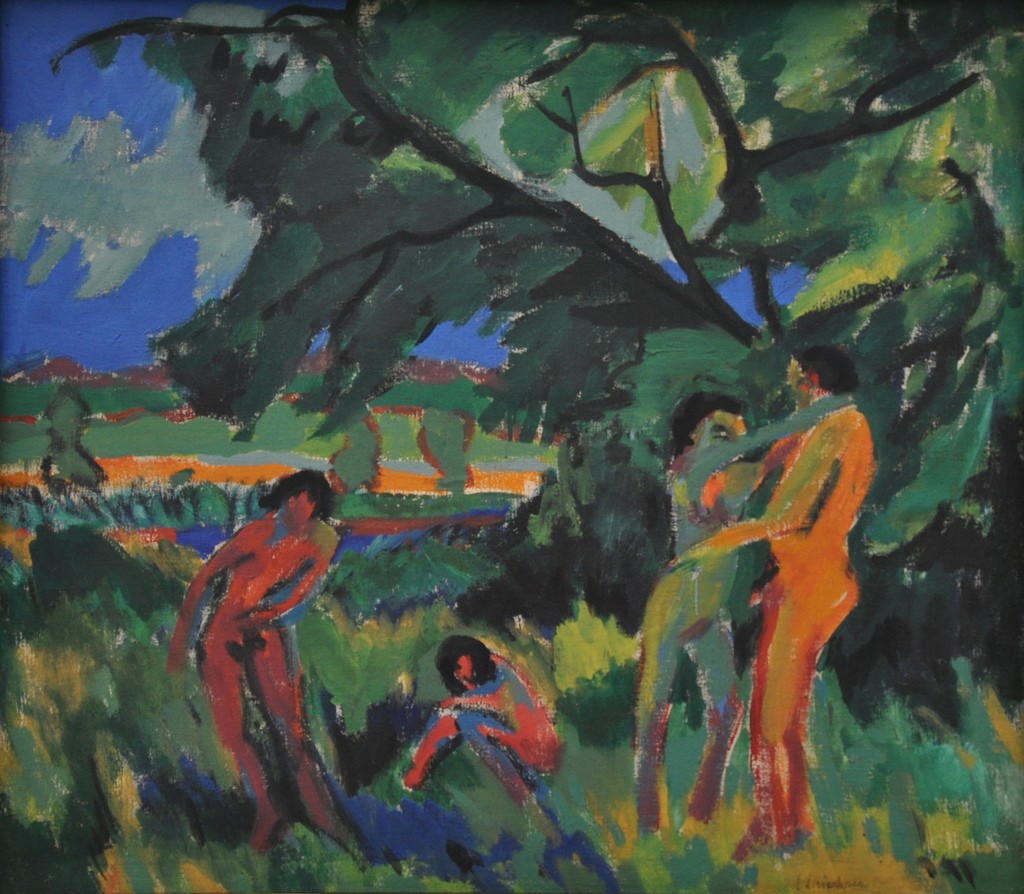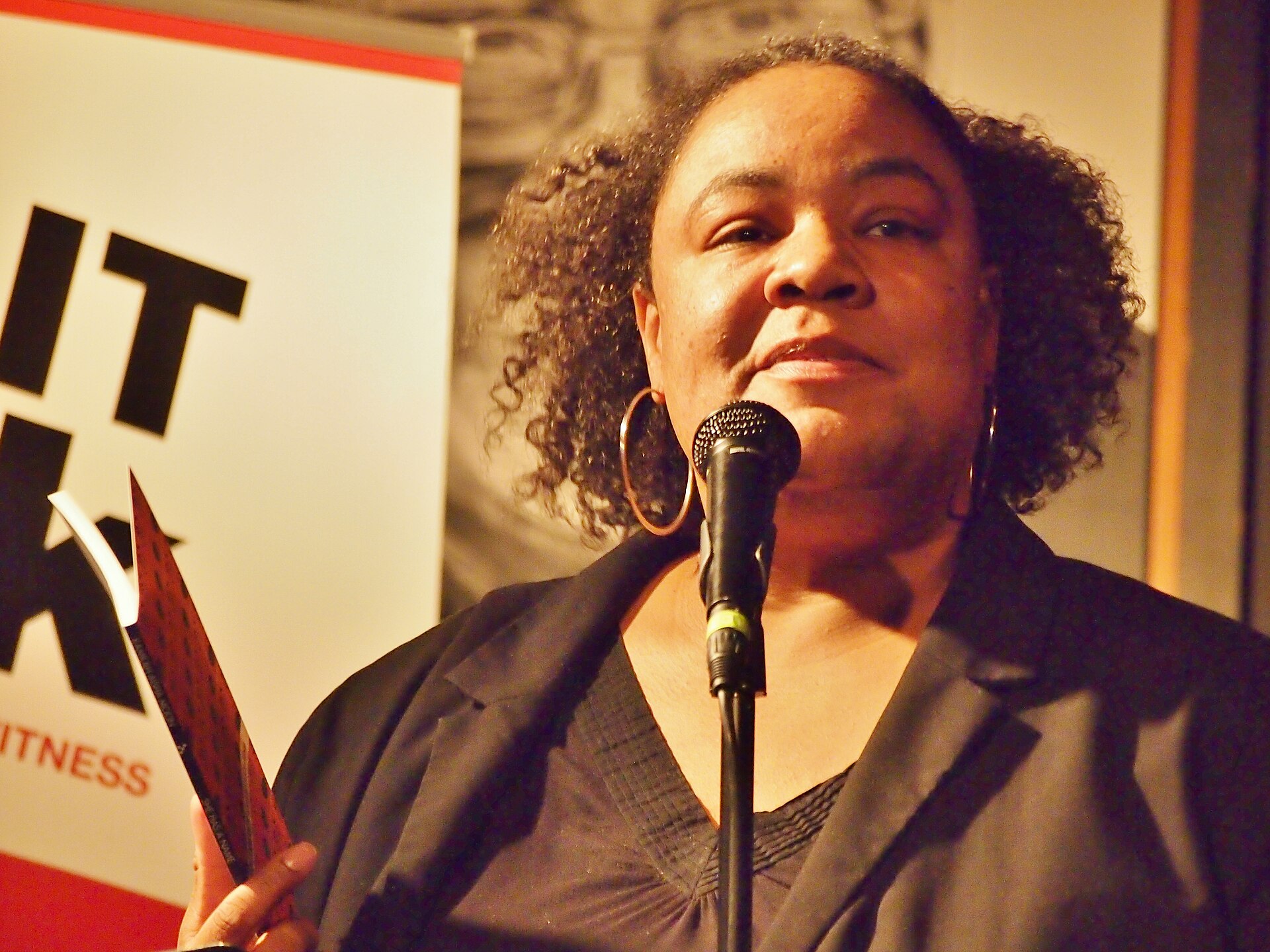essays
Why We Love Women’s Revenge Narratives
Stories like ‘Three Billboards’ rely on our hunger to see (white) women get back at those who’ve wronged them
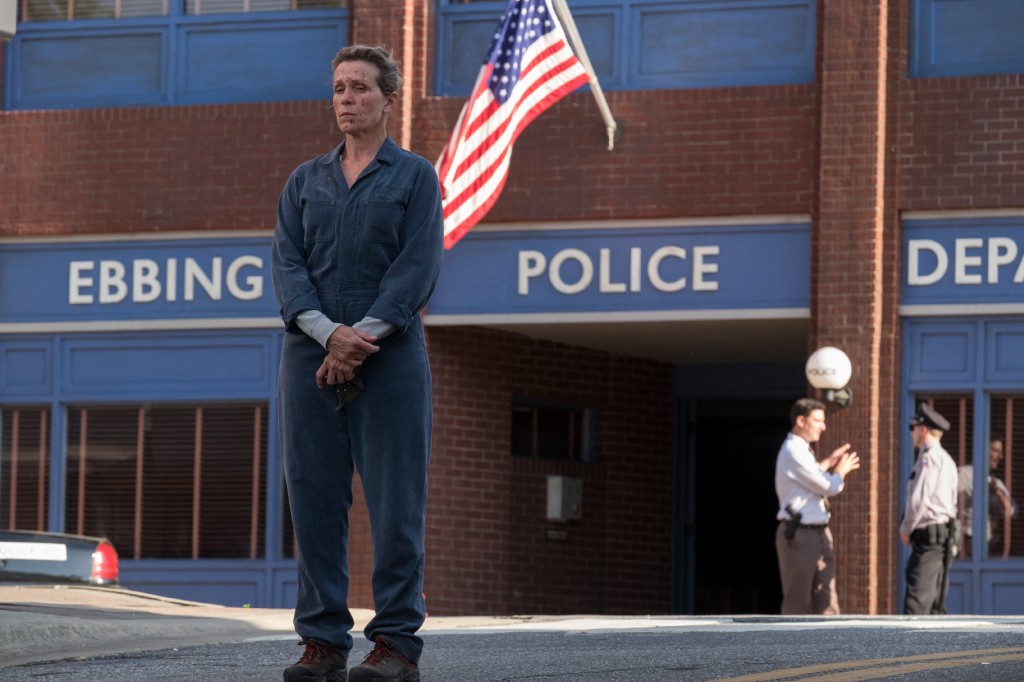
As Mildred Hayes approaches her abusive ex-husband in a crowded restaurant, the camera closes in on her fingers wrapped around the neck of the wine bottle she’s carrying. The viewer waits with apprehension and glee for Mildred to smash it over his head.
This is, after all, the woman who drilled a hole in the thumb of her dentist; the woman whose daughter was raped and murdered, a crime which seemed to generate only slight consternation on the part of the local police department; the woman who’s just learned of a fresh act of betrayal by her physically abusive ex, dating a woman half his age.
By this point in Martin McDonagh’s film Three Billboards Outside Ebbing, Missouri (2017), Mildred has already tormented a dying police chief and Molotov cocktailed the police station, inadvertently setting fire to one of its most objectionable officers. Frances McDormand’s Mildred — a role for which she recently took home a Golden Globe — is by turns fierce and broken, a woman past her sexual prime, hell-bent on stirring up unnecessary trouble for some hard-working police officers who’d much prefer to be left to their racist devices.
But instead of whacking her ex (John Hawkes) with the bottle of wine, Mildred sets it onto the table. “Be nice to her, Charlie,” she tells her former husband, his stunned expression giving form to how the audience feels. “You got that?”
Writer/director McDonagh relies heavily on Mildred’s status as a (white) woman and grieving mother to guarantee that she’ll be established as a deserving target of our empathy.
The moment is a turning point for Mildred’s character, as well as a subversion of the viewer’s expectations. Throughout most of Three Billboards, Mildred’s fury over her daughter’s unsolved murder — and her conviction that the police department has neglected its duty in advancing the case — is the point on which the narrative turns. From the first moments of the film, which also won the Golden Globe for Best Picture, Mildred’s swearing, priest-confronting, dentist-drilling character flies in the face of traditional expectations regarding femininity and motherhood. Rendered feral by her grief, Mildred directs her quest for revenge not against the unknown perpetrator but against the police department, shaming the police chief (Woody Harrelson) via a set of billboards.
Mildred may rub many of the small town’s inhabitants the wrong way, but for the film to have the emotional heft it intends, the viewer’s sympathies must remain aligned with her, no matter how irrational or violent her actions might be. Writer/director McDonagh (netting a third Golden Globe, for Best Screenplay) relies heavily on Mildred’s status as a (white) woman and grieving mother to guarantee that she’ll be established as a deserving target of our empathy. The film operates off the assumption that within Mildred’s character, and thus within her quest for retribution, is an inherent righteousness. It’s only from setting up an unquestionable sense of her integrity that McDonagh is able to use displays of stoicism, anger, and violence as opportunities for catharsis and humor, without worrying that the audience will turn against his protagonist.

The setting of Three Billboards plays an indispensable part in establishing this narrative, that of an uncouth woman who operates like a Wild West vigilante. And why shouldn’t it work? It’s a trope that’s been successfully deployed before. In its various iterations, starting with the 1968 novel by Charles Portis, True Grit tells a similar story of a grieving female protagonist bucking traditional notions of femininity in pursuit of revenge. In 1873, a century and a half before Mildred rented space on a stretch of billboards, fourteen-year-old Mattie Ross hires a hard-drinking, eye-patched U.S. Marshall to track down her father’s killer. Insisting on accompanying him in his journey through “Indian Territory,” she subverts the expectations of Marshall Rooster Cogburn and of LaBoeuf, the cowlicked Texas Ranger looking for the same guy — not to mention those of the audience. The reader expects grief and fragility from Mattie, but instead gets a girl who dismembers a man’s corpse in order to escape a pit that’s filled with rattlesnakes (a fitting and presumably unintended metaphor for the dismantling of the patriarchy).
The reader expects grief and fragility from Mattie, but instead gets a girl who dismembers a man’s corpse in order to escape a pit that’s filled with rattlesnakes.
Rather than a female role model or positive supporting character from which Mattie and Mildred might draw inspiration and strength, True Grit and Three Billboards each present two deeply flawed men, ultimately redeemed despite their questionable behavior. In both narratives the protagonist and their two male foils are allowed narrative arcs of their own, and an opportunity for redemption, while the rest of the characters, particularly those of color, remain flat and one-dimensional (see Gene Demby’s incisive Twitter thread on Three Billboards’ failures in the framing of race). True Grit, which relies on a number of cameos by such caricatures, features three leading men — Cogburn, LaBoeuf, and Mattie’s father — who fought as Confederate soldiers in the Civil War, a fact that gets treated as an irrelevant footnote in their moral track records, if not meant to serve as actual evidence of their valor.
In Three Billboards, Officer Dixon (Sam Rockwell), who admits to torturing a black man and later throws another man out a second-story window, is portrayed as being redeemed through his participation in Mildred’s revenge quest. Though the storyline has been pointed out as problematic by a number of critics, the performance nevertheless won Rockwell a Golden Globe. Police Chief Willoughby — who excuses, if not outright condones, the racist behavior of his officers — is presented in a sympathetic light, thanks in large part to the reveal of his terminal cancer, his efforts to mentor Dixon, and his photogenic family.
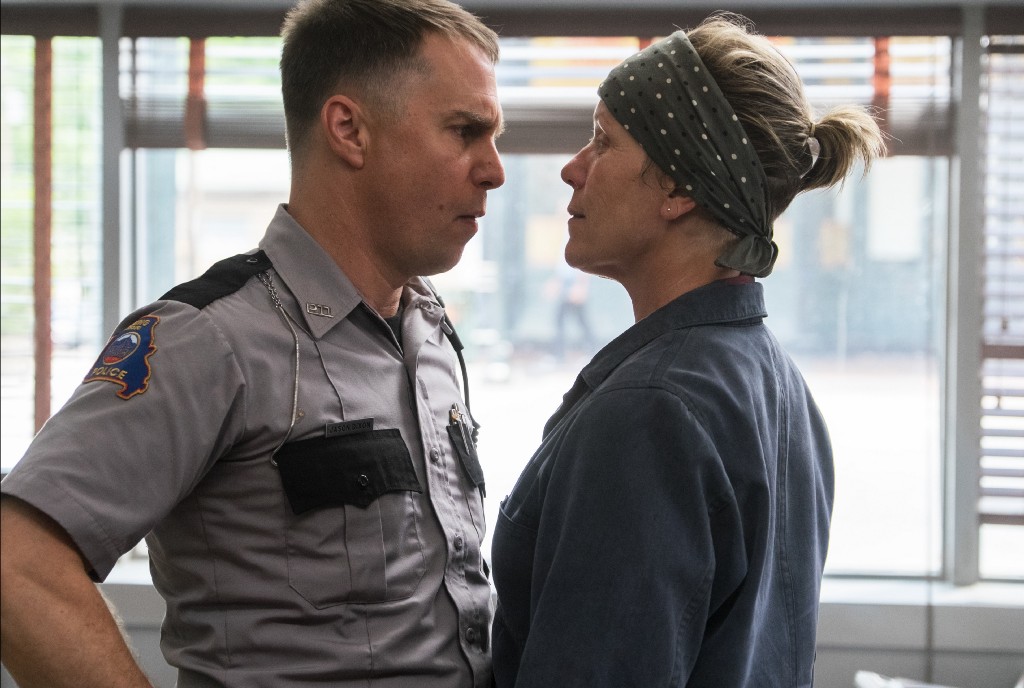
Mildred’s violent acts are also largely devoid of consequence (at least for her; at one point a black coworker of Mildred’s is arrested, something we’re meant to believe is intended merely to rattle Mildred herself), a fact inseparable from her whiteness. In the film’s final scene, in which Mildred confesses to Dixon that she was the one who set fire to the police station (and, by extension, to him), he expresses neither surprise nor anger. Mildred reacts by laughing for the first time in the film, caught off guard by a forgiveness that echoes the forgiveness Dixon himself received earlier, from the man he previously threw out of a window.

In his National Book Award-winning novel The Good Lord Bird, James McBride utilizes some aspects of the grieving-woman-as-Wild-West-vigilante trope, though he deploys it in a more nuanced and complicated way. Set in 1856, the book follows ten-year-old Henry Shackleford, who witnesses his father’s somewhat accidental killing and afterwards is kidnapped by the infamous John Brown, the abolitionist declaring Henry free and mistaking him for a girl, as well as a good luck charm. Henry — whose name Brown thinks is Henrietta — is henceforth nicknamed Onion, after the good luck onion he eats as he struggles to adjust to his new life as the free-ish companion of the holy roller abolitionist. Primarily concerned with survival, Onion doesn’t have the luxury of wallowing in grief over his father’s death, or seeking revenge for it, but is rather swept along by the current of Brown’s quest to dismantle the “infernal institution.” Being a boy masquerading as a girl offers Onion a unique vantage from which to compare and contrast his expectations with his actual experiences, constantly questioning and unsure of his footing, with gender roles never far from his mind.
Being a boy masquerading as a girl offers Onion a unique vantage to compare his expectations with his actual experiences, with gender roles never far from his mind.
The residents of the fictional town of Ebbing, Missouri, meanwhile, never fail to center Mildred’s gender and her sexuality, or lack thereof, in their approximation of her character. While Mattie and Onion are often told that they’re too young — to join a fight, to ride with outlaws, to know what they’re talking about — Mildred is viewed by her community as failing in her dual roles as sex object and mother. She struggles to connect with her teenage son (Lucas Hedges); Chief Willoughby teases her about her ex-husband’s younger girlfriend; the physical abuse she’s experienced at the hands of her ex is called into question by multiple characters, one using the words that every woman innately knows: “it’s your word against his.” A heavy-handed flashback, the only one in which Mildred’s daughter (Kathryn Newton) appears, suggests why Mildred might feel guilt about her daughter’s murder — a guilt further compounded when she learns that her daughter had asked to live with dad shortly before her death. In stark contrast to Mildred’s deficient parenting and lack of sex appeal, the viewer is presented with Exhibit A, Chief Willoughby, who has great sex with his young attractive wife (Abbie Cornish), after spending an afternoon fishing for stuffed animals with his two adoring daughters.
In True Grit Rooster Cogburn initially dismisses Mattie on the basis of her age and her gender. He repeatedly calls Mattie “baby sister” in the 1969 film, and both “a baby” and “sister” (as well as the more imaginative “harpy in trousers”) in the Coen brothers’ 2010 remake. Yet despite his hardscrabble ways and contempt for social norms, Cogburn is never cast as a potential predator. Texas Ranger LaBoeuf, on the other hand, initially sees Mattie as both a meddling child and a sex object. “Earlier tonight I gave some thought to stealing a kiss from you,” he tells her, “though you are very young, and sick and unattractive to boot, but now I am of a mind to give you five or six good licks with my belt.” As a pickup line it belongs in a class of its own, managing to simultaneously claim, threaten, and diminish her. Mattie grudgingly wins the respect of Cogburn and LaBoeuf (“she has won her spurs, so to speak”), but only after they repeatedly try to exclude her from their expedition, and after LaBoeuf lashes Mattie with a switch for her disobedience (when she cries out to Cogburn, asking him to save her, he obliges).
Onion also comes under threat from a man seeking to take advantage of his age and perceived gender, a slave named Darg, who is forced to live in a pen outside the brothel where Onion resides, in between time spent with Brown. After Onion faints out of genuine fear (“fainted dead out right in the mud, just like I seen the white ladies do,”), he notes Darg’s solicitous reaction to his fragility, exploiting it to distract and flatter his pursuer. “It it possible for a gallant gentleman like you to get a girl a glass of water?” asks Onion. “I’m ever so shook now with gratefulness, have been jooped and jaloped by your kind protection.” At times Onion fulfills the expectations other characters already have of a young girl — that despite her tough exterior, she will at some point require the protection or assistance of men — in order to survive.

Before any of these three protagonists receive assistance from men, the author first establishes that they merit help, repeatedly reminding us of the good heart that exists under their veneer of toughness. Gender and grief and, in Mildred and Mattie’s cases, whiteness, are essential to this construction, though the authors seek to communicate their virtuousness in other ways as well. In an early scene in Three Billboards, Mildred flips over a beetle struggling on its back. Elsewhere she tells off a self-righteous priest for his hypocrisy, and calls out the police department for its racism, thus establishing in the minds of the audience that she’s a principled hard-ass — never mind that the audience hasn’t actually seen any behavior to meaningfully demonstrate those principles, only an assurance that they exist.
Mattie’s virtue is inextricably intertwined with the ways in which she rejects many — though significantly not all — of the conventions of 19th-century girlhood. She remains prim and proper at all times, Mildred’s opposite in almost every way. She disapproves of Rooster Cogburn’s drinking habits and frequently quotes the Bible: “The wicked flee when none pursueth,” Mattie reminds the reader. Her grief on the page is muted — partly because of the dialogue-heavy and interiority-light nature of Portis’s novel, and partly due to the matter-of-fact nature of her character. “What a waste!” she says of her father’s murder, almost as though she’d witnessed someone throw away a perfectly good apple. Her desire for revenge is rooted in a biblical eye-for-an-eye sensibility: “You must pay for everything in the world one way or another,” Mattie says. Never shying away from a conflict or a firefight, Mattie is single-minded in her pursuit of retribution — seeking it as the righting of a wrong — and also unflinching in the face of danger.
Before these protagonists receive assistance from men, the author first establishes that they merit help, repeatedly reminding us of the good heart that exists under their veneer of toughness.
John Brown relies upon the perception of Onion’s innocence and weakness to shame his men for their lack of bravery, calling attention to Onion’s sacrifices when they worry about being able to recruit enough troops for the raid on Harpers Ferry, noting that “this little girl [who] has risked life and limb to join us and lived out on the plains and braved battle like a man…If a little girl will do it, a man certainly will.” Onion mostly uses his disguise as a girl to avoid violence and fighting, rather than seeking it out. But because he is a recently freed slave, and (is thought to be) a young girl, even that limited involvement is read as heroic. “There were certain advantages,” Onion says of the bonnets and dresses, “like not having to lift nothing heavy, and not having to carry a pistol or rifle, and fellers admiring you for being tough as a boy, and figuring you is tired when you is not, and just general niceness in the way folks render you.” But even when Onion leans into his new identity as a girl, he retains habits that are accepted in some settings (“a damsel out west on the trail could spit, chaw tobacco, holler, grunt, and fart, and gather no more attention to herself than a bird would snatching crumbs off the ground,”) though not in polite company.
These rebellions against convention are meant to shock not only the other characters in these worlds, but also the audience. Mattie’s persistence and matter-of-fact stoicism, and Mildred’s unflinching anger, are sensationalized and occasionally played for laughs. Despite every obstacle thrown at her Mattie refuses to yield, and she follows her pair of questionable role models without complaint, sleeping on the unforgiving dirt and subsisting on the 19th-century version of hush puppies. She doesn’t hesitate to shoot her father’s murderer, Chaney, when she encounters him along a ravine. ”I didn’t think you’d do it!” he exclaims, despite the fact that he just walked her through the steps of firing the gun. Nor does Mattie despair when trapped in a pit alongside a coil of rattlesnakes nestled inside a corpse — instead, she yanks the skeleton’s arm out of its socket with the most blasé of justifications to the reader: “A terrible thing to do, you say, but you will see that I now had something to work with.”
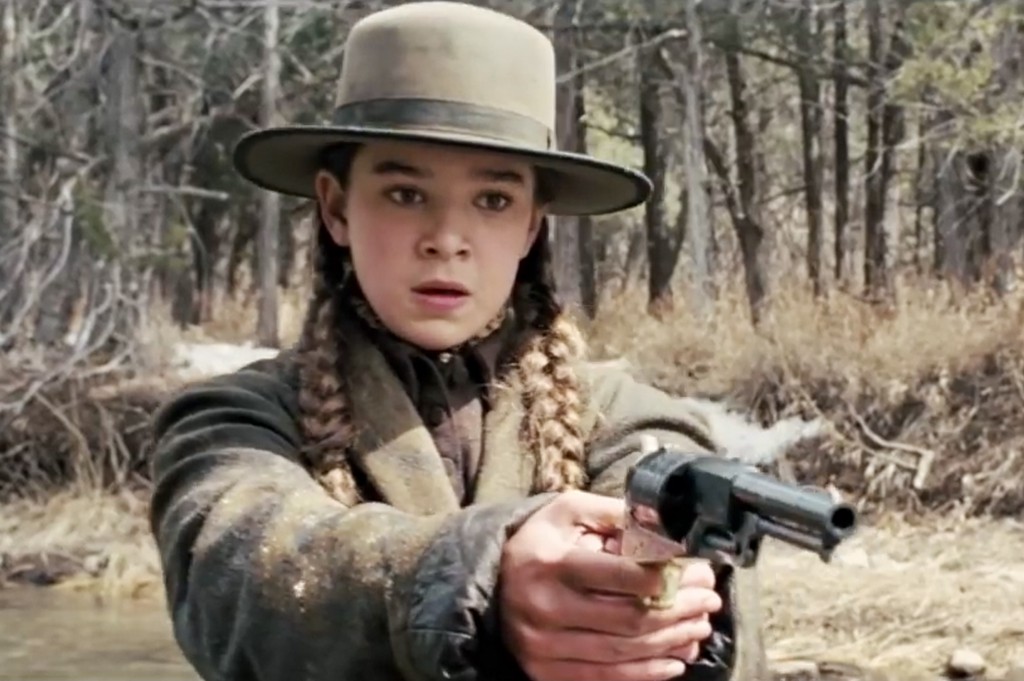
Even more so than Mattie’s scrappiness, Mildred’s violent subversion of convention often creates opportunities for humor. In one such scene, Mildred kicks a teenage boy and girl in their crotches after they throw a soda at her car. It’s hard to imagine the scene would have elicited similar shocked laughter from the audience had an adult man done this. A moment in which Mildred’s ex-husband starts to choke her in front of their teenage son is quickly deflated and even played for laughs once ditzy girlfriend Penelope enters the house, making an inane comment. The impossibly quick pivot functions to minimize Mildred’s experience of domestic violence, and to suggest that she wasn’t in any real danger (a bizarre insinuation for the film to make, not least for how Mildred’s daughter died).
Earlier in the film Mildred’s admission, that she knew Chief Willoughby was dying of cancer and decided to rent billboards critical of him anyway, are meant to catch the audience off guard. The billboards “wouldn’t be as effective after you croak,” she tells a stunned Willoughby. Surely, he thinks, and so the audience is meant to think, Mildred couldn’t be this devoid of empathy. And she isn’t — viewers see her cry multiple times, apologize to Chief Willoughby’s widow, pour her soul out to both a terribly rendered CGI deer and to her pair of bunny slippers, and look remorseful when she realizes the racist policeman she burned to a crisp had saved her daughter’s case file from being consumed in the flames. But these moments of vulnerability are presented as notable exceptions, strategically deployed to prevent the audience’s sympathy to Mildred from wavering.
These moments of vulnerability are presented as notable exceptions, strategically deployed to prevent the audience’s sympathy to Mildred from wavering.
It’s difficult to determine what Mildred is thinking at any given moment, as the viewer isn’t granted the extensive access to her consciousness that a reader has in a first-person novel like The Good Lord Bird. True Grit is also written in first person, but Portis eschews lengthy passages of interiority and relies instead on rapid-fire dialogue, much of which makes it verbatim into the films. One could argue that what the reader is left with of Mattie’s character constitutes a façade: that her lack of deeply felt emotion is merely a mask, put on not only for the tough men around her, but for the reader as well. Portis may have felt that the emotions driving Mattie were less important than the actions she took to avenge her father’s death, and that her inherent grit — the quality she seeks out in Rooster Cogburn — needed to be unquestionable.
Mattie doesn’t kiss her father’s corpse, even when the undertaker encourages her to do so. In both films she tears up when given her father’s possessions; she doesn’t in the original novel, though she does admit to being in tears at the triple hanging at the outset of the novel, an event she insisted on witnessing (“I would see it all”). Her moments of vulnerability are few and far between; she cries out “more from anger and embarrassment than pain” when LaBoeuf beats her with a switch, and fears for her life “for the first time” towards the end of the novel, when she believes Cogburn and LaBoeuf have abandoned her with her father’s murderer.
Mildred, Mattie, and Onion are all, to some extent, strategic about when they cry and who they allow to witness it. The association of crying with feminine weakness is not only ancient and persistent, but creates a double bind. To cry is to let emotion overcome you; to not cry enough, if you’re a woman, is to be an unfeeling automaton (though any female presidential candidate could have told you that). Onion, working within the triple limitations placed on him by his race, adopted gender, and age, learns to exploit this as a survival tactic: “I was in a quandary, and my tears busted forth again, which worked out perfect, for it moved them all to my favor, and I seen right off that crying and squalling was part of the game of being a girl.”
Whether crying or not crying, prim and proper or violent and antagonistic, these three protagonists ultimately end up turning to men for their protection or assistance. Onion and Mattie do so most overtly, additionally hampered by their youth, but even Mildred falls into this pattern. Frustrated by the lack of progress in her daughter’s case, her instinct is not to try to solve it herself — however irrational or improbable that may be — but to spur the men of the police department to take action. There are no prominent female police officers in Ebbing, and the other female characters in the film largely act as plot devices (Mildred’s daughter; her coworker Denise), or foils to Mildred’s sexlessness and fierceness (Charlie’s new girlfriend, Penelope; the equally ditzy Pamela, at the office where Mildred rents out the billboards). The other two remotely significant female characters are Chief Willoughby’s wife-turned-widow, whose sex appeal and husband-worship are treated with a kind of reverence in the film, and Officer Dixon’s mother, whose gruff exterior belies an unwavering support for her highly objectionable son. In both cases these women are defined by, and exist solely in relation to, their affiliation and devotion to a husband or a son.


Other women are almost entirely absent from True Grit; only passing reference is made to Mattie’s mother, for instance. Mattie herself hardly seems interested in female role models or companionship, nor is she interested in romantic relationships. “She must have been silly,” Mattie remarks about Ophelia’s death from a broken heart in Hamlet. As an older woman her ultimate allegiances are to her church and her bank, and she rejects the societal assumption that true happiness can be derived only from belonging to another person: “They think everybody is dying to get married…I never had the time to get married but it is nobody’s business if I am married or not married. I care nothing for what they say. I could marry an ugly baboon if I wanted to and make him cashier.”
The association of crying with feminine weakness creates a double bind. To cry is to let emotion overcome you; to not cry enough, if you’re a woman, is to be an unfeeling automaton.
Of these three narratives, The Good Lord Bird is most interested in looking at other female “profiles in courage.” Through much of the novel, as Onion is swept along in the turbulent wake of John Brown, he observes and compares himself to other models of womanhood. There’s Pie, who like him places more importance on survival than revolution; there’s Sibonia and Libby, who do precisely the opposite; and then there’s Harriet Tubman, who like John Brown possesses a conviction and fortitude that leads people to follow her (Brown refers to her as “General Tubman”), at great personal cost. When Tubman exhorts the members of a crowd to “be a man” Onion thinks, “well, it hurt my heart to hear her talk that way, for I was wanting to be a man myself, but afraid of it, truth be told, ’cause I didn’t want to die.” Moments later, reflecting on the courage of Tubman and Sibonia, Onion yells out that he’s ready to join the cause, leading others to follow suit.
Early on in The Good Lord Bird, Brown refers to his quest as “exacting the Lord’s revenge,” but later disavows the idea of riding for revenge. Revenge implies an almost petty vindictiveness, a narrowing of scope rendered meaningless by the vast and systemic evil of slavery. The death of Onion’s father becomes almost irrelevant to him and to the narrative, save that it catalyzes the meeting of Onion and Brown. Despite the efforts undertaken by Portis and McDonagh to invest us in the revenge quests of their female protagonists, attempting to imbue them with sympathetic and unquestionable intentions, neither narrative presents an airtight case for revenge — not when those quests simultaneously include men whom the authors absolve for their abhorrent beliefs and actions.




